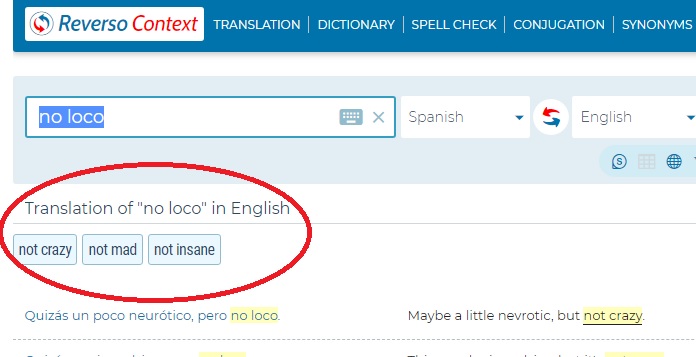
A funny thing I’ve learned while waging war against CCSS (Common Core State Standards), when you listen very closely, all kinds of truth can be shared, especially when those who support the Standards seek to impress those within earshot. Case in point? The recent NC ASRC meeting (Academic Standards Review Commission). It was in this meeting I learned of a new (at least new-to-me) Task Force for NC. It’s purpose? Dealing with summative assessments. You know summative assessments, right? Those are the types of tests that are high stakes, that measure and demean those on either side of the test. (See my posts from 11/15/14; 09/08/14 where I go in-depth on types of assessments, the control factor from businesses, politicians, and government)
Found in my older articles:
Here’s an excerpt from the Sept. post about Assessments that features the report “Using Assessments”, “Repeated assessment allows governments and the international community to set goals for improved learning outcomes to spur reform efforts. Although the worldwide rates of improvement in test scores suggest these goals should be modest and long term, assessments can help hold leaders to account. In the right institutional setting, they can also form the basis for incentive payments; schools, districts, or countries that meet goals might receive additional resources from national governments or donor agencies. In particular, specific goals and incentives might encourage progress in schools or districts furthest behind. Finally, assessments allow for wider experimentation on what works in education, inside and outside the classroom, applicable to specific country circumstances. This experimentation is clearly required given the limited progress we have seen in improving outcomes to date.”
You might recognize summative assessments by at least 2 other names, SBAC and PARCC. The big push to have the Task Force up and running? The timetable used by our states to be ready for these two mammoths. However, depending on your state as to when your high stakes assessments begin or have already begun, you’ll want to read on to find out WHY all this matters.
What’s a Task Force to do?
Well, great question. It’s going to need another question in response before we can get an answer. Which level of government would you like..state or federal? Since this all started for me at a state level, I’ll go there first. While NC’s officially titled group needs it’s own zip code (the name is so long), it’s not the only state with such a task force. The NC State Board of Education’s Summative Assessment Task Force held its first meeting back in Oct. 2014. It’s accountable to the NC Legislative Joint Education Oversight Committee. Of note, one member you may find interesting, Dr. Atkinson (as in our State Superintendent; President of CCSSO, 1/2 owner of the CCSS copyright) serves on the Task Force.
Here’s a description of the Task Force, “The State Board created the Task Force to explore options for the administration of state summative standardized tests beginning in the 2016-17 school year. The State Board is to report its decision to the North Carolina General Assembly’s Joint Legislative Education Oversight Committee by July 15, 2015. The General Assembly will ultimately approve the summative assessments, which are to be nationally normed, aligned with the North Carolina Standard Course of Study and field tested. Here’s a link to the NC State Board of Ed’s meeting notes/minutes. However, you won’t get much information as there have only been 2 meetings and no supporting documents tied to the meetings are linked. (https://eboard.eboardsolutions.com/Meetings/MeetingListing.aspx?S=10399&TyID=2)
Summative Task Force from a Federal Level:
Since NC is a member of SBAC (Smarter Balanced Assessment Consortium), I thought I’d include the SBAC Quarterly Report where they happily share with us how they have partnered with the U.S. Dept. of Education to create Task Force groups. (see: http://www.smarterbalanced.org/wordpress/wp-content/uploads/2014/04/Quarterly-Report-September-2013.pdf)
Since I know some of my readers are members of PARCC states (Partnership of Assessment of Readiness for College and Career) Here’s their statement of gathering a task force: http://parcconline.org/prepping-parcc-new-resources-under-development
NOTE: Considering the above groups were given $160 million, I would think our connection between federal level and summative assessments doesn’t need a tremendous amount of evidence to add to what’s already available.
Related:
A letter promoting the alignment of assessments to standards from the NC Chamber of Commerce: http://ncchamber.net/wp-content/uploads/2014/11/11-04-Buddy-Collins-Letter.pdf
There’s more than SBAC and PARCC!
Thanks to the Chief Council of State School Officer’s website, you too, can have access to a more complete list of summative assessment groups. So, while SBAC and PARCC have a big advantage, they also don’t have a corner on the assessments market. For review purposes, SBAC states are: CA, CT, DE, HI, ID, IA, ME, MI, MO, MT, NV, NH, NC, ND, OR, SD, VT, WA, WI, WV, WY and the U.S. Virgin Islands.
PARCC states are: AR, CO, the District of Columbia, IL, LA, MA, MD, MS, NJ, NM, NY, OH, and RI.
Others are/states involved:
NCSC (National Center and State Collaborative Partnership) covers Alaska, Arizona, Connecticut, District of Columbia, Florida, Georgia, Indiana, Louisiana, Massachusetts, Nevada, New York, North Dakota. A subgroup of NCSC is the PAC-6 (Pacific Assessment Consortium) and covers 6 states: Pacific Assessment Consortium (PAC-6), Pennsylvania, Rhode Island, South Carolina, South Dakota, Tennessee and Wyoming.
DLM (Dynamic Learning Maps Alternative Assessment Consortium) which is geared for those with learning disabilities. Member states are Iowa, Kansas, Michigan, Mississippi, Missouri, New Jersey, North Carolina, Oklahoma, Utah, Virginia, Washington, West Virginia, and Wisconsin.
ASSETS (Assessment Services Supporting English Language Learners Through Technology Systems Consortium) received a multi-million dollar 4 year grant (expired this year) to not only align assessments for those learning the English language to CCSS as well as conduct more research for future projects with ‘nationally renowned partners’.
ELPA21 Consortium
This collective group consists of 11 states, several universities, colleges, and the CCSSO. All are working together to assess, track, and monitor those learning English not only through their K-12 path, but higher education in regards to College/Career Readiness. Member states are: Arkansas, Florida, Iowa, Kansas, Louisiana, Nebraska, Ohio, Oregon, South Carolina, Washington, and West Virginia. Member universities/colleges are: Stanford, Univ. of CA at LA, and the Univ. of MN. The Univ. of OR is the head of the project and CCSSO manages the operations.
Also accessed from the CCSSO website (http://www.ccsso.org/):
“Alignment and the States” from 2009, a CCSSO pdf publication. See: Alignment_and_the_States_2009 While a bit dated, the information is priceless in our fight against the CCSS. In this you’ll see the 3 different types of assessments being used in modern day education reform. What is a ‘need to know’ piece for you is that commercial companies, state education departments, P3s (public, private partnerships), and others had a hand in not only formulating these, but promoting them now. You’ll need to look at the ‘cross grain’ comparisons (quality is okay, but not terrific). NAEP (‘The Nation’s Report Card’ people) had a big hand in this; but more about them in a bit.
From the published pdf above, one national company was mentioned that I’d not heard of before. So, after finding it on the internet, I snooped in their education blog and found their 4 suggested criteria for aligning computer adaptive assessments. See: https://www.humrro.org/corpsite/blog/2013-10-22/alignment-criteria-adaptive-tests
So, What Can I Do Now?
First off, identify what assessment group your state is in. If you don’t already know the types of assessments used, research them. For example, Texas didn’t adopt the CCSS, but uses assessments held by CCSS aligned publishers. (see their list: nrtlist1415v92314)
Second, know your laws. If your laws are anything like NC’s there will be separate sections for what education is and what assessments are. For example, while NC made a lot of noise about repealing CCSS and the 7/16/14 law (formerly SB812) states certain things about assessments, I think we need to closely look at what IS said about assessments. Why? Because while the SBAC and PARCC are widely known and associated with CCSS, the ones mentioned in the 2014 Law to Repeal suggest others that aren’t as widely identified as being tied to CCSS! Not everyone will associate the National Assessment of Educational Progress as ‘toxic’ or “CCSS aligned”, but this is one of the CCSSO’s choice ‘go to’ organizations!
I did find another section in the NC General Statutes devoted to assessments says NC is to continue on in CCSS. From item 3, Section 10 of Chapter 115A, “The State Board of Education shall continue to participate in the development of the Common Core State Standards in conjunction with the consortium of other states, review all national assessments developed by both multi-state consortia, and implement the assessments
Common Core State Standards.” This portion of the Section 10 has been in the General Statutes since 7/1/2009. Also included in Section 10, ” State Board of Education
shall not require the public schools to administer any standardized tests except for those
required by federal law or as a condition of a federal grant. The State Board of Education shall adopt and provide to local school administrative units all tests required by federal law or as a condition of a federal grant.”
Third, find out if your state has an assessment task force and who serves on it.
My point? The left hand and the right hand not only have to visible in education, they need to be open, with palms facing up and placed on the table. Hold your legislative members accountable. If they draft or pass legislation that states ‘repeal’ and didn’t address the assessments, ASK about it!
I leave you with one of the latest NAEP promo videos for yet another assessment that tests across subjects:




3 thoughts on “WYBI Wednesday: Summative Testing Task Force”